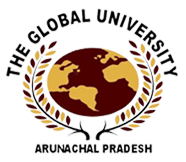M.Sc. MLT in Biochemistry
Your Pathway to Advanced Expertise in Clinical Biochemistry and Laboratory Technology
About the Course
The Master of Science in Medical Laboratory Technology (M.Sc. MLT) in Biochemistry is a specialized 2-year program designed for individuals aspiring to enhance their expertise in the field of clinical biochemistry and laboratory diagnostics. This course provides in-depth knowledge and practical skills in biochemical analysis, laboratory techniques, and diagnostic methods used in medical laboratories.
The program is tailored for students who wish to pursue a career in medical diagnostics, research, or academia. It integrates advanced biochemical concepts with laboratory technology, preparing students to contribute to healthcare through accurate diagnostic testing and research in biochemistry.
Course Highlights
- Duration: 2 Years
- Eligibility Criteria: To be eligible for the M.Sc. MLT in Biochemistry program, candidates must meet the following criteria:
- Must have completed a B.Sc. in Medical Laboratory Technology (MLT) or a relevant field (e.g., Biochemistry, Microbiology, Biotechnology) with at least 50% marks.
- Students should have a strong foundation in basic biochemistry, molecular biology, and laboratory techniques.
- Candidates must be at least 21 years of age by the time the program commences.
- Mode of Study: Full-Time
- Accreditation: Accredited by relevant educational and healthcare authorities.
Key Subjects Covered
- Advanced Clinical Biochemistry: In-depth study of biochemical processes and their role in health and disease, including enzyme kinetics, metabolic pathways, and biochemical disorders.
- Laboratory Instrumentation and Techniques: Training on the use of modern laboratory instruments like spectrophotometers, chromatography, and electrophoresis for biochemical analysis.
- Molecular Biology and Genetics: Study of DNA/RNA, gene expression, and genetic testing techniques used in clinical diagnostics.
- Immunology and Serology: Understanding of immune system functions, diagnostic immunology, and serological tests in disease detection.
- Quality Control in Laboratory Medicine: Procedures for ensuring accuracy, precision, and reliability in laboratory testing.
- Clinical Diagnostics and Case Studies: Application of biochemical testing to diagnose and monitor diseases such as diabetes, liver disease, and kidney disorders.
- Research Methodology and Biostatistics: Introduction to scientific research techniques, statistical analysis, and data interpretation for laboratory studies and clinical research.
Why Choose The Global University for M.Sc. MLT in Biochemistry?
- Advanced Curriculum: A well-rounded curriculum that integrates biochemistry, laboratory technology, and clinical diagnostics.
- Experienced Faculty: Learn from experienced professionals in biochemistry and laboratory medicine who guide students through both theoretical and practical aspects of the field.
- State-of-the-Art Laboratories: Access to cutting-edge laboratory facilities equipped with the latest diagnostic tools and instruments for hands-on learning.
- Research Opportunities: Engage in research projects and clinical studies that contribute to advancements in healthcare and biochemistry.
- Internships and Industry Connections: Collaboration with leading hospitals, medical labs, and research institutions for internships and career placements.
- Comprehensive Career Support: Guidance for job placements, research opportunities, and career progression in the field of medical laboratory science.
Career Opportunities
Graduates of the M.Sc. MLT in Biochemistry program are well-equipped to pursue a range of roles in medical laboratories, research institutions, and healthcare facilities, including:
- Clinical Biochemist: Work in hospital laboratories to perform biochemical analyses for diagnosing diseases and monitoring treatment progress.
- Laboratory Manager: Oversee the daily operations of medical laboratories, ensuring efficiency, quality control, and accurate results.
- Diagnostic Researcher: Conduct research on diagnostic technologies, biochemical markers, and new treatments.
- Medical Laboratory Technologist: Specialize in biochemical testing for clinical diagnostics and contribute to patient care.
- Academic/Research Faculty: Pursue a career in teaching or research in universities and medical research institutions.
- Quality Control Analyst: Ensure the quality of medical tests and laboratory procedures, maintaining high standards in medical laboratories.
How to Apply
- Visit our Apply Now page.
- Complete the online application form and upload the required documents (mark sheets, certificates, etc.).
- Submit valid certificates and proof of eligibility.
- Pay the application fee and await confirmation of admission.
Contact Us
Write Us: info@tgu.ac.in
Website: www.tgu.ac.in
